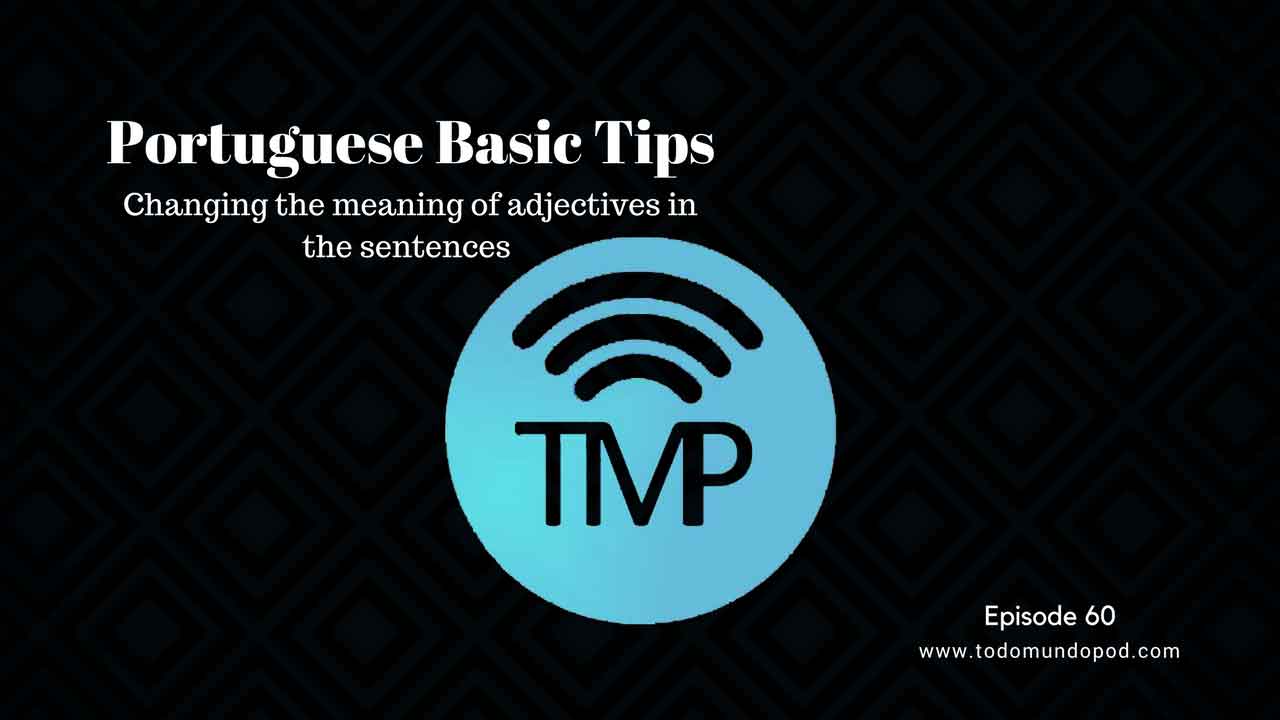Changing the meaning of adjectives in the sentences in Portuguese

Changing the meaning of adjectives in the sentences in Portuguese
Hello there and welcome to our Portuguese Basic Tips (in English) number 60 called Changing the meaning of adjectives in the sentences in Portuguese
On today’s podcast we are going to speak about how to change the meaning of adjectives in the sentences in Portuguese.
Click on the link to visit our podcast about more idiomatic expressions used in Brazil
On today’s podcast, we are going to speak about a simple but useful subject: today we are going to speak about the different meanings that the same adjective could have in a sentence in Portuguese.
For instance, in English, we normally use the adjective before the noun in a sentence.
For example: he is an old friend of mine. Notice that the adjective “old” was used before the word “friend” in this sentence.
Talking about Portuguese language, there’s no mandatory sequence to be followed. I mean, you can use both adjectives and nouns first. However, sometimes – just sometimes – when you change these two, you change the meaning of the whole sentence.
Speaking like that, it seems more difficult to understand than it really is. What I want you to know is that if you say, for instance “ele é meu velho amigo” you mean “he is my old friend”, but if you say “ele é meu amigo velho” you mean that “he is old. He is your friend and he is old, but you don’t necessarily know him for a long time.
In Portuguese, we tend to use the adjective after using the noun in a sentence. It’s pretty common to say “casa maravilhosa” (wonderful house), but you can also say “maravilhosa casa”. That’s correct and both sentences mean the same in this case.
You may be wondering when to change this words sequence in Portuguese, right?. So let’s learn the main adjectives you must know to be self-confident with this task.
Homem grande and grande homem
– Ele é um homem grande.
When you say so, you mean “he is a tall man”.
- Ele é um grande homem.
Speaking like that you mean “he is a great man”. Much more than that, I think the best translation here would be “he is worthy”.
The fact is in the first example we are referring to a man of large dimensions. In the second example, we refer to someone’s honor.
Oficial alto and alto oficial
– Ele é um oficial alto. (He is a tall official)
– Ele é um alto oficial (He is a high official)
The first sentence, again, refers to someone with large dimensions. In the second case, we are referring to the position he has in the corporation.
Menina pobre and pobre menina
- Mas que pobre menina! (What a poor girl).
- Aquela menina é pobre (That girl is poor).
Casa própria and própria casa
– Ele vive em sua própria casa. (He lives in his own house).
– Aquela casa é própria para duas pessoas viverem (That house is proper for two people to live).
Notice that in the first example we are talking about someone’s property, someone’s house. On the other hand, in the second example, we are referring to something that is appropriated.
Especially when we use the term “próprio”, we still can find a meaning of emphasis in the sentence.
For instance: Ele próprio fez aquilo. (He did it himself).
Become a Premium Member and download our full transcripts
Click on the link and learn more about adjectives in Portuguese
That’s enough for today!
I hope you like it.
Marcos Sales
Podcast (portuguesebasictips): Play in new window | Download







1 Response
[…] Ouça o nosso último episódio sobre mudança de significado dos adjetivos nas frases […]